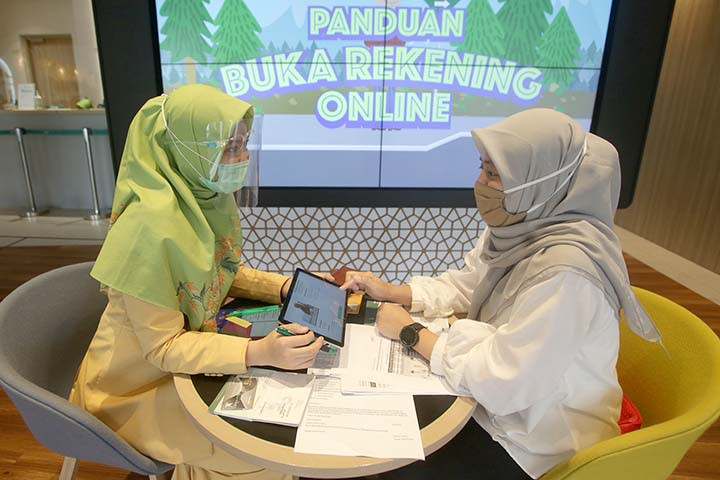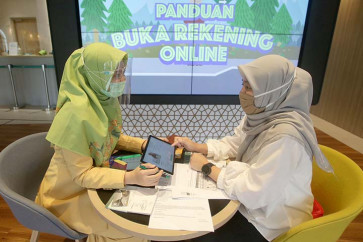Popular Reads
Top Results
Can't find what you're looking for?
View all search resultsPopular Reads
Top Results
Can't find what you're looking for?
View all search resultsExplainer: What’s sharia banking and where’s Indonesia taking it?
Indonesia is looking to grow sharia finance, banking on its Muslim-majority population.
Change text size
Gift Premium Articles
to Anyone
 A Bank Mandiri Syariah employee serves a customer on Sept. 3, 2020 at the Islamic lender's Central Jakarta office. Indonesia has two types of sharia banks, full-fledged sharia banks and banks that are sharia business units (UUS) of conventional banks, like Bank Mandiri Syariah. (JP/Wendra Ajistyatama)
A Bank Mandiri Syariah employee serves a customer on Sept. 3, 2020 at the Islamic lender's Central Jakarta office. Indonesia has two types of sharia banks, full-fledged sharia banks and banks that are sharia business units (UUS) of conventional banks, like Bank Mandiri Syariah. (JP/Wendra Ajistyatama)
I
ndonesia recently launched its largest sharia bank, Bank Syariah Indonesia (BSI), as it seeks to develop the country into a sharia finance hub.
The government of the world’s largest Muslim-majority country has been looking to develop its sharia economy since establishing the Indonesian Sharia Economy Master Plan 2019-2024 for becoming a prominent player in the global sharia economy.
Despite the ambitious plan, information on Islamic banking and finance has been generally lacking for consumers. According to the Financial Services Authority (OJK), Indonesia’s sharia financial literacy rate was a mere 8.93 percent in 2019, far below the conventional financial literacy rate of 37.72 percent.
Experts still maintain that sharia banking has potential to grow and even support the country’s larger halal economy.
Read also: Sharia finance thrives despite pandemic, to further grow in 2021: OJK
What is sharia banking?
Law No. 21/2008 on sharia banking defines it as a banking system that is based on the principles of sharia, or Islamic law, and is regulated under a series of fatwas issued by the Indonesian Ulema Council (MUI).

















